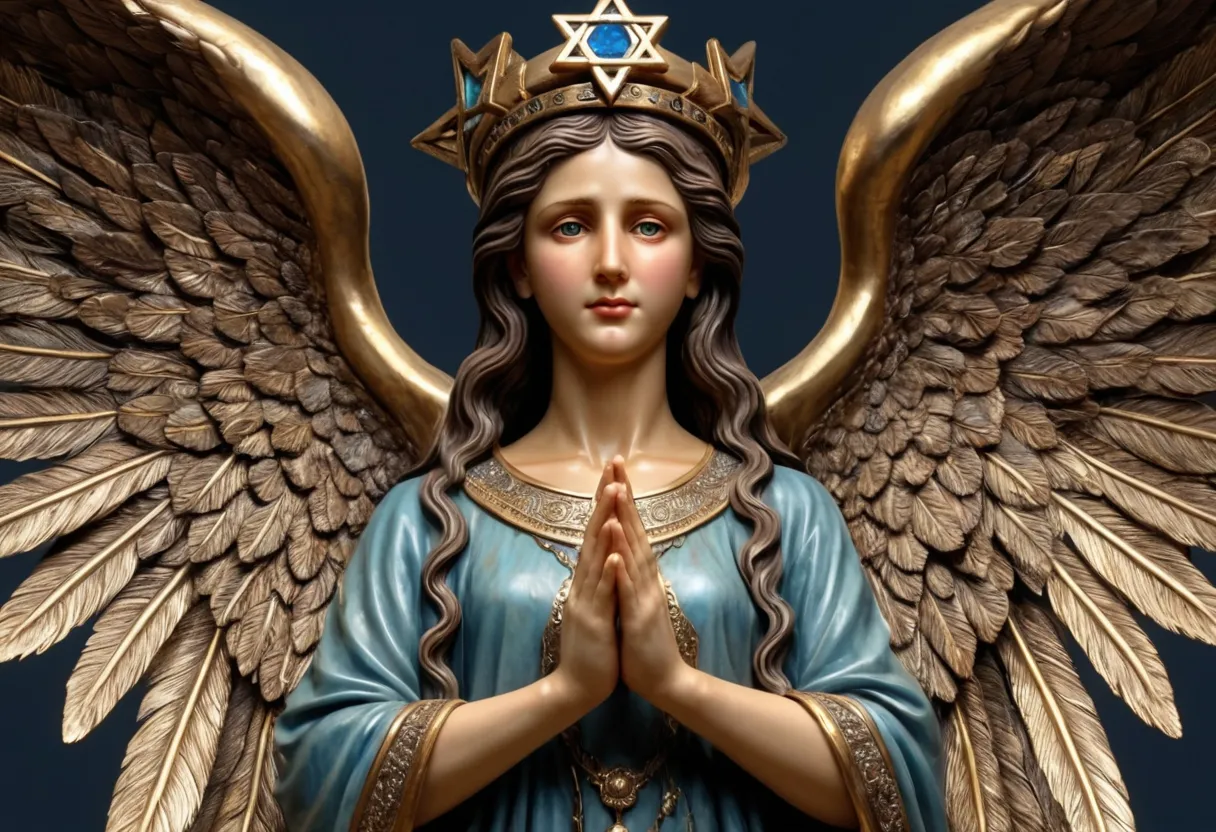Judaism is one of the oldest monotheistic religions, deeply woven into the fabric of history, culture, and spirituality. Its influence is profound, not only among those who practice it but also in shaping the ethical and moral frameworks of many societies. This article delves into the key aspects of Judaism, providing a comprehensive understanding of its beliefs, practices, historical significance, and contemporary relevance.

The Origins and History of Judaism
Judaism traces its roots back over 3,000 years to the ancient Near East. It is traditionally believed to have begun with the covenant between God and Abraham, a pivotal figure in Jewish history, around 2000 BCE. Abraham is considered the patriarch of the Jewish people, and his descendants, through his son Isaac and grandson Jacob (later named Israel), formed the twelve tribes of Israel.
The narrative of the Jewish people is chronicled in the Hebrew Bible, particularly in the Torah, which comprises the first five books. Key events include the Exodus from Egypt under Moses’ leadership, the giving of the Torah at Mount Sinai, and the establishment of the Kingdom of Israel and Judah. The destruction of the First and Second Temples in Jerusalem marked significant periods of upheaval and dispersion, leading to the Jewish Diaspora.

Core Beliefs and Practices
Monotheism: Central to Judaism is the belief in one, indivisible God. This monotheism is articulated in the Shema, a prayer declaring the oneness of God: “Hear, O Israel: The Lord our God, the Lord is one” (Deuteronomy 6:4).
The Torah: The Torah, also known as the Pentateuch, is the foundation of Jewish law and theology. It is complemented by the Talmud, a comprehensive compilation of rabbinical discussions and interpretations of the Torah’s laws and ethical teachings.
Mitzvot: Jewish law encompasses 613 commandments (mitzvot) that guide religious and ethical conduct. These include rituals like keeping kosher, observing the Sabbath (Shabbat), and celebrating holidays such as Passover, Yom Kippur, and Hanukkah.

Prayer and Worship: Prayer is an integral part of Jewish life. Daily prayers are recited individually or communally in a synagogue, with the most important prayer services occurring on the Sabbath and Jewish holidays.
Ethical Living: Judaism places a strong emphasis on ethical behavior and social justice, encapsulated in the concept of Tikkun Olam, or “repairing the world.” This principle encourages Jews to contribute positively to society and work towards justice and peace.
Jewish Denominations
Judaism is not monolithic; it comprises several denominations that reflect varying interpretations and practices:
Orthodox Judaism: Adheres strictly to traditional Jewish law and practices. It includes subgroups like Modern Orthodox and Haredi (ultra-Orthodox) communities.

Conservative Judaism: Balances tradition with modernity, adhering to Jewish law while allowing for some adaptation to contemporary life.
Reform Judaism: Emphasizes individual autonomy in interpreting Jewish teachings, often embracing progressive values and integrating them into religious practice.
Reconstructionist Judaism: Views Judaism as an evolving religious civilization, focusing on cultural and historical continuity while promoting egalitarianism and community involvement.
Jewish Holidays and Festivals
Jewish holidays are deeply rooted in history and religious tradition, each carrying unique significance and customs:
Rosh Hashanah and Yom Kippur: The Jewish New Year (Rosh Hashanah) and the Day of Atonement (Yom Kippur) are the High Holy Days, marked by reflection, repentance, and prayer.

Passover (Pesach): Commemorates the Exodus from Egypt, with rituals including the Seder meal and the prohibition of leavened bread.
Hanukkah: Celebrates the rededication of the Second Temple and the miracle of the oil that lasted eight days. It involves lighting the menorah, playing dreidel, and eating fried foods.
Sukkot: A harvest festival recalling the Israelites’ 40 years in the desert, observed by dwelling in temporary structures (sukkot).
Shavuot: Marks the giving of the Torah at Mount Sinai and is celebrated with study, prayer, and dairy foods.

The Jewish Life Cycle
Judaism provides rituals and customs to mark significant life events:
Brit Milah: The circumcision ceremony for newborn Jewish boys, symbolizing the covenant with God.
Bar and Bat Mitzvah: The coming-of-age ceremony for Jewish boys (Bar Mitzvah at 13) and girls (Bat Mitzvah at 12 or 13), marking their responsibility to observe Jewish commandments.
Marriage: Jewish weddings are rich in tradition, featuring the signing of the ketubah (marriage contract) and the breaking of a glass to symbolize the destruction of the Temple and the fragility of life.
Death and Mourning: Jewish customs surrounding death include the immediate burial, sitting shiva (a week-long mourning period), and reciting the Kaddish prayer.

Judaism in the Modern World
In the contemporary era, Judaism continues to adapt and thrive. Jewish communities are found globally, with significant populations in Israel, the United States, and Europe. Modern challenges and opportunities include interfaith relations, secularism, and the integration of Jewish values with modern life.
Israel: The establishment of the State of Israel in 1948 was a pivotal moment in Jewish history, providing a homeland for Jews worldwide and influencing Jewish identity and politics.
Diaspora Communities: Jewish life in the Diaspora remains vibrant, with diverse cultural, educational, and religious institutions supporting Jewish continuity and engagement.
Social Issues: Jews are active in addressing social justice issues, including combating anti-Semitism, advocating for human rights, and contributing to philanthropic endeavors.

Conclusion
Judaism, with its rich history, profound beliefs, and enduring traditions, offers a deep well of wisdom and spirituality. Its contributions to ethics, law, and culture are immeasurable, and its adaptability ensures its relevance in the modern world. Whether through ancient rituals or contemporary practices, Judaism continues to inspire and guide millions of people in their spiritual and everyday lives.











